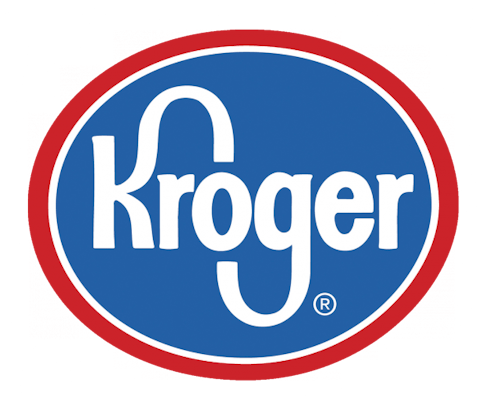I have returned from my first big grocery shopping trip since The Kroger Co. (NYSE:KR) stopped doubling manufacturer’s coupons.
It wasn’t pretty.
As an extreme couponer, losing the savings advantages of double coupons is a major hit to my grocery budget. Before the recent coupon change, I expected to save about 75% off my groceries. I still use coupons, but without the benefit of doubling, I am spending just as much money as before, but getting considerably less.
Rodney McMullen, the President and COO of The Kroger Co. (NYSE:KR), doesn’t seem to think I will mind too much. (He’s wrong.) “We invested the monies that were saved from double coupons into lower everyday pricing,” McMullen told investors. “So if you look in total, it actually had no effect on gross margin. What we found was there weren’t very many customers actually engaged with double coupons and we felt like it was better to give lower prices to all customers so all customers could get the benefit of that. So it really didn’t affect much.”
The Kroger Co. (NYSE:KR) doesn’t expect to lose me, or other couponers, as a customer!
For Q1 2013, The Kroger Co. (NYSE:KR) reported $30 billion in sales, a 3% increase over Q1 2012. But gross margins were down 15 basis points from a year ago. Sales at stores open at least a year rose 3.3% during the period, excluding fuel. For the quarter, The Kroger Co. (NYSE:KR) earned $481 million, compared to $439 million a year earlier.
The Kroger Co. (NYSE:KR) store brands now account for 26% of total units sold and 24% of total sales, excluding pharmacy and fuel. Kroger pushes store brands aggressively (those “everyday pricing” savings he mentioned above, are often on store brands). McMullen noted that once customers try store brands, they stick with them, and don’t tend to go back to name-brand products.
McMullen’s claim poses an interesting question. What poses the biggest threats to a grocer? Loss of a loyal customer? Other grocers? Or the manufacturers/producers of the products on the grocer’s shelves?
It’s all about the brand name
If McMullen is right, that customers like store brands more than name brands, this claim would be a great boon to the chain. Why compete with other stores when you can find success with better sales within your own store?
But a defection from name brands to store brands doesn’t appear be reflected in the sales at some of the major manufacturers. Kellogg Company (NYSE:K) is the second largest global savory snack company. The company’s strategy is to be the dominant company in both cereal and snacks – two areas Kroger store brands compete in.
For instance, Kellogg Company (NYSE:K) reported that first-quarter 2013 net sales increased by 12.2% to $3.9 billion. EPS growth was estimated to stay in the range of 5%-7%. Kellogg Company (NYSE:K) is a commendably diverse international company, but still receives most of its revenue domestically. The company is doing well, and analysts expect to see Kellogg Company (NYSE:K) to grow at a rate of 7.8% in the coming years. Kellogg Company (NYSE:K) recently announced a $1 billion share repurchase plan, expiring in April 2014.
Despite the indomitable presence of Kellogg Company (NYSE:K)’s cereals, at the company’s U.S. snack division, which includes Pringles, Keebler cookies, and Cheez-It crackers, internal net sales declined by 1.7%. And Kellogg Company (NYSE:K)’s North America overall net sales were $2.6 billion in the first quarter, an increase of 8.1%.
The anticipated defection to store brands is not reflected at The Procter & Gamble Company (NYSE:PG). The household products magnate earned $2.57 billion in the fiscal third quarter ended in March, up from $2.41 billion a year earlier. The Procter & Gamble Company (NYSE:PG) revenue rose to $20.6 billion from $20.19 billion a year ago, but fell short of Wall Street expectations. The company cited “heavy” competition taking a toll on net sales of hair care and skin products. But that competition isn’t coming from Kroger store brands- Kroger doesn’t offer a store brand in those categories!
Both The Procter & Gamble Company (NYSE:PG) and Kellogg offer solid dividend yields, in addition to strong growth potential and cash flow. Kroger also offers a nice 1.7% dividend.
At Campbell Soup Company (NYSE:CPB), which does make products in direct competition with Kroger store brands, there was an improvement in sales and soundly outperformed its competitors in comparable categories. The Campbell Soup Company (NYSE:CPB)’s core U.S. soup business rose 14% in the fiscal third quarter, the largest quarterly gain in nearly five years. The company attributes the positive growth to improved taste in existing products, adding new products to their offerings, and cutting back on advertising. For the fiscal third quarter, Campbell Soup Company (NYSE:CPB) reported a profit of $181 million compared with a year-earlier profit of $177 million.
Campbell Soup Company (NYSE:CPB) has worked on improving flavor, expanding its product line, and has recently acquired other competitors and markets internationally. While other companies have increased ad spending, Campbell Soup Company (NYSE:CPB) cut back, without losing sales. The improvement in Campbell Soup Company (NYSE:CPB)’s soup business, plus internal restructuring and changes, have contributed to nearly 40% rise in Campbell shares over the past year.The changes at Campbell have helped it regain lost market share, but it will still take a few more years to see how it all plays out before it can be truly determined how strong a company and strong a competitor the soupmaker really is.


